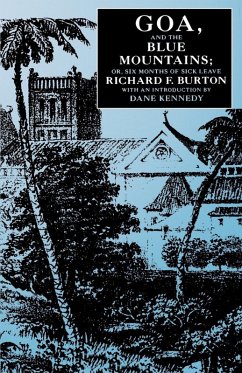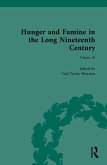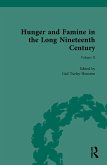Published in 1851, this is the first book written by the famed Victorian explorer Richard F. Burton. It is an account of his journey through portions of southwest India while he was on sick leave from the British Indian army. Traveling through Bombay to the Portuguese colony of Goa, he went through Calicut and other cities on the Malabar coast, ending up in the Nilgiri mountains at the hill station of Ootacamund. The observant traveler, not the intrepid adventurer, is the narrator of the account, and its intended audience was the voracious Victorian consumer of travel literature.
Coupled with a critical introduction by Dane Kennedy, this facsimile edition provides a revealing look at the people who inhabited a part of India that was generally off the beaten track in the nineteenth century. The Portuguese and Mestizo inhabitants of Goa, the Todas of Ootacamund, as well as the fellow Britons Burton meets on his journey are all subject to his penetrating scrutiny. Burton's clever, ascerbic, and unorthodox personality together with his irreverence for convention and his bemused disdain for humanity come through clearly in these pages, as does his extraordinary command of the languages and literatures of various peoples.
"What a glad moment it is, to be sure, when the sick and seedy, the tired and testy invalid from pestiferous Scinde or pestilential Guzerat, 'leaves all behind him' and scrambles over the sides of his Pattimar."
"His what?"
"Ah! we forget. The gondola and barque are household words in your English ears, the budgerow is beginning to own an old familiar sound, but you are right-the 'Pattimar' requires a definition."
This title is part of UC Press's Voices Revived program, which commemorates University of California Press's mission to seek out and cultivate the brightest minds and give them voice, reach, and impact. Drawing on a backlist dating to 1893, Voices Revived makes high-quality, peer-reviewed scholarship accessible once again using print-on-demand technology. This title was originally published in 1992.
Published in 1851, this is the first book written by the famed Victorian explorer Richard F. Burton. It is an account of his journey through portions of southwest India while he was on sick leave from the British Indian army. Traveling through Bombay to t
Coupled with a critical introduction by Dane Kennedy, this facsimile edition provides a revealing look at the people who inhabited a part of India that was generally off the beaten track in the nineteenth century. The Portuguese and Mestizo inhabitants of Goa, the Todas of Ootacamund, as well as the fellow Britons Burton meets on his journey are all subject to his penetrating scrutiny. Burton's clever, ascerbic, and unorthodox personality together with his irreverence for convention and his bemused disdain for humanity come through clearly in these pages, as does his extraordinary command of the languages and literatures of various peoples.
"What a glad moment it is, to be sure, when the sick and seedy, the tired and testy invalid from pestiferous Scinde or pestilential Guzerat, 'leaves all behind him' and scrambles over the sides of his Pattimar."
"His what?"
"Ah! we forget. The gondola and barque are household words in your English ears, the budgerow is beginning to own an old familiar sound, but you are right-the 'Pattimar' requires a definition."
This title is part of UC Press's Voices Revived program, which commemorates University of California Press's mission to seek out and cultivate the brightest minds and give them voice, reach, and impact. Drawing on a backlist dating to 1893, Voices Revived makes high-quality, peer-reviewed scholarship accessible once again using print-on-demand technology. This title was originally published in 1992.
Published in 1851, this is the first book written by the famed Victorian explorer Richard F. Burton. It is an account of his journey through portions of southwest India while he was on sick leave from the British Indian army. Traveling through Bombay to t
Dieser Download kann aus rechtlichen Gründen nur mit Rechnungsadresse in A, D ausgeliefert werden.









